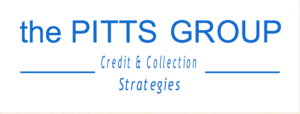Executive Level Accounts Receivable Management
A petroleum distributor’s accounts receivable asset class will typically be its #2 or #3 largest dollar balance sheet item. It is not uncommon for more dollars to show up in accounts receivable than in real estate or rolling stock. Because the accounts receivable aging is tended to by the credit department, it’s good practice for executive level management to know more about this critical asset class and associated department than just what shows up in the aging buckets. In other words, looking at the A/R aging at 10:00 pm on a Saturday night only serves the purpose of raising blood pressure.
Some suggestions for a more productive executive level approach to keeping on top of issues related to receivables cash flow:
1. What are the quarterly trends for a few key KPIs, over a running two-year period? Are they tracking up, down, steady? Popular KPIs include Days Sales Outstanding, Best Possible Days Sales Outstanding, Collection Effectiveness Index, % Over 60 Days Past Due.
2. What are the inflated columns of your aging, and why are they in that condition? Significant amounts of dollars in the Over 10 column may indicate small annoying issues with invoicing or cash application. Inflation of the Over 60 column is a sign of poor credit decisions and poor collection efforts. High dollar amounts in the Over 90 column may indicate an ineffective process for bringing in third party collectors or legal action. Be sure your collectors are making use of available back-office technology to touch your past due customers quickly and frequently. For an example of that, try not paying your electric bill and see what happens starting on day 1.
3. Who makes up the Top 10 Collection Headaches, and what’s the plan to collect those dollars? Often times just a few customers make up this distinguished list, and collecting those outstanding balances would add significant dollars to cash flow. These are the customers that might need a high level, in- person visit to discuss the game plan for bringing them current. These customers are frequently thought of as “best customer” to salespeople unaware or not paying attention to the high cost of slow pay habits.
4. What bottlenecks are problematic in the credit department? An example would be a high volume of customer credit applications being submitted only halfway completed. Another example is billing and invoicing issues that create lots of phone calls and research time in the credit It is highly possible your credit folks aren’t complaining enough about other department’s problems floating down to be solved by credit staff, but it can be a very big issue.
5. Why are your customers calling the credit department? How many calls come through in a typical week, and why are these calls burning up staff time? Frequently, the calls are about problems that need to be not only fixed, but traced up the ladder to the root cause within another department like billing or The Credit Research Foundation reports a current trend to merge certain tasks between Customer Service and Credit Department to create the most efficient customer experience. Whatever can be done to lessen the amount of interruptions will result in a much more highly efficient credit department.
Executive level management having a good grasp on these Top 5 A/R Issues is a great step to improving the efficiency and results of this most important department!


For more information,
contact Ann Pitts
at ann.pitts@pittsgroup.net
or 817.304.1533

